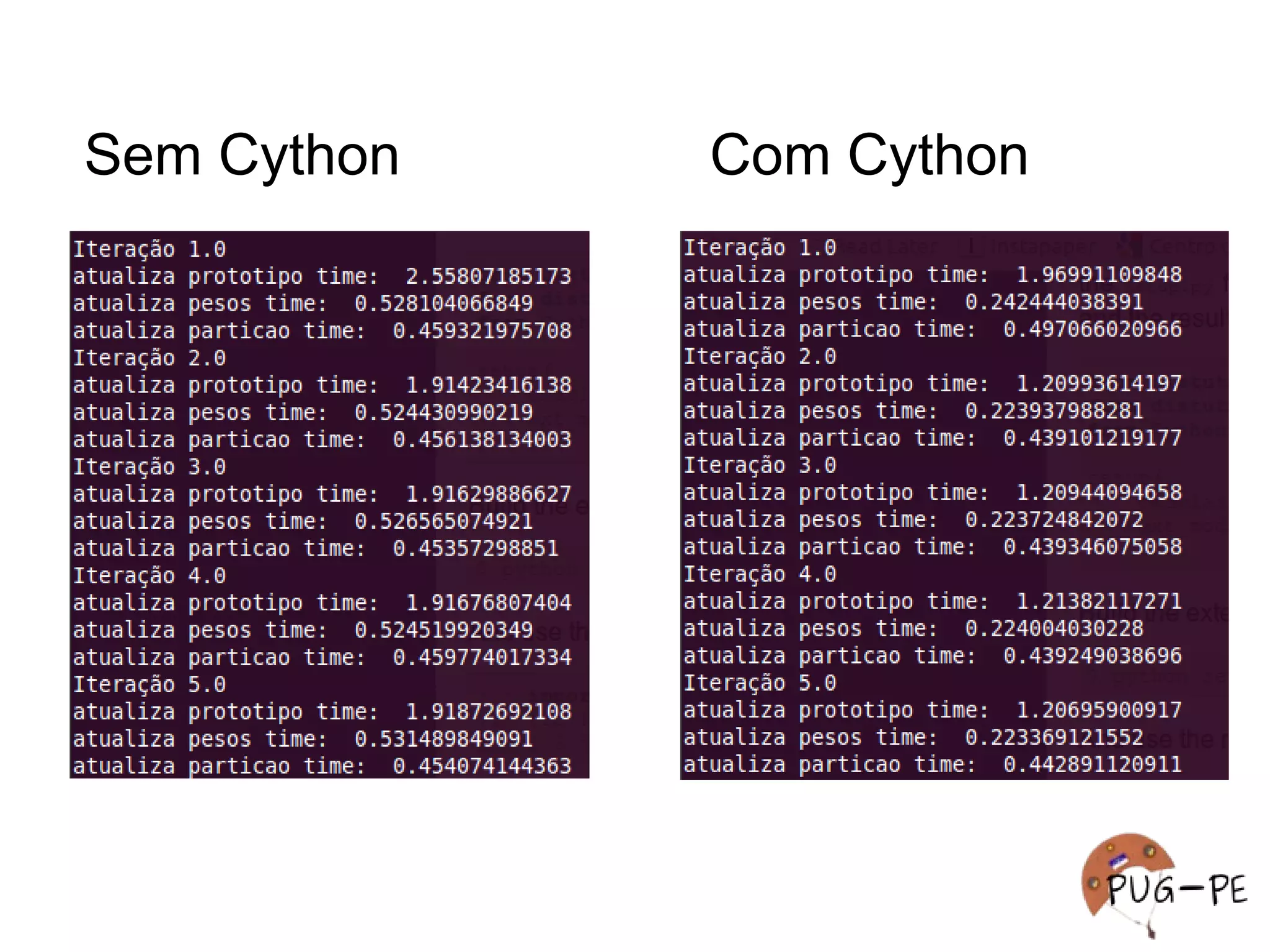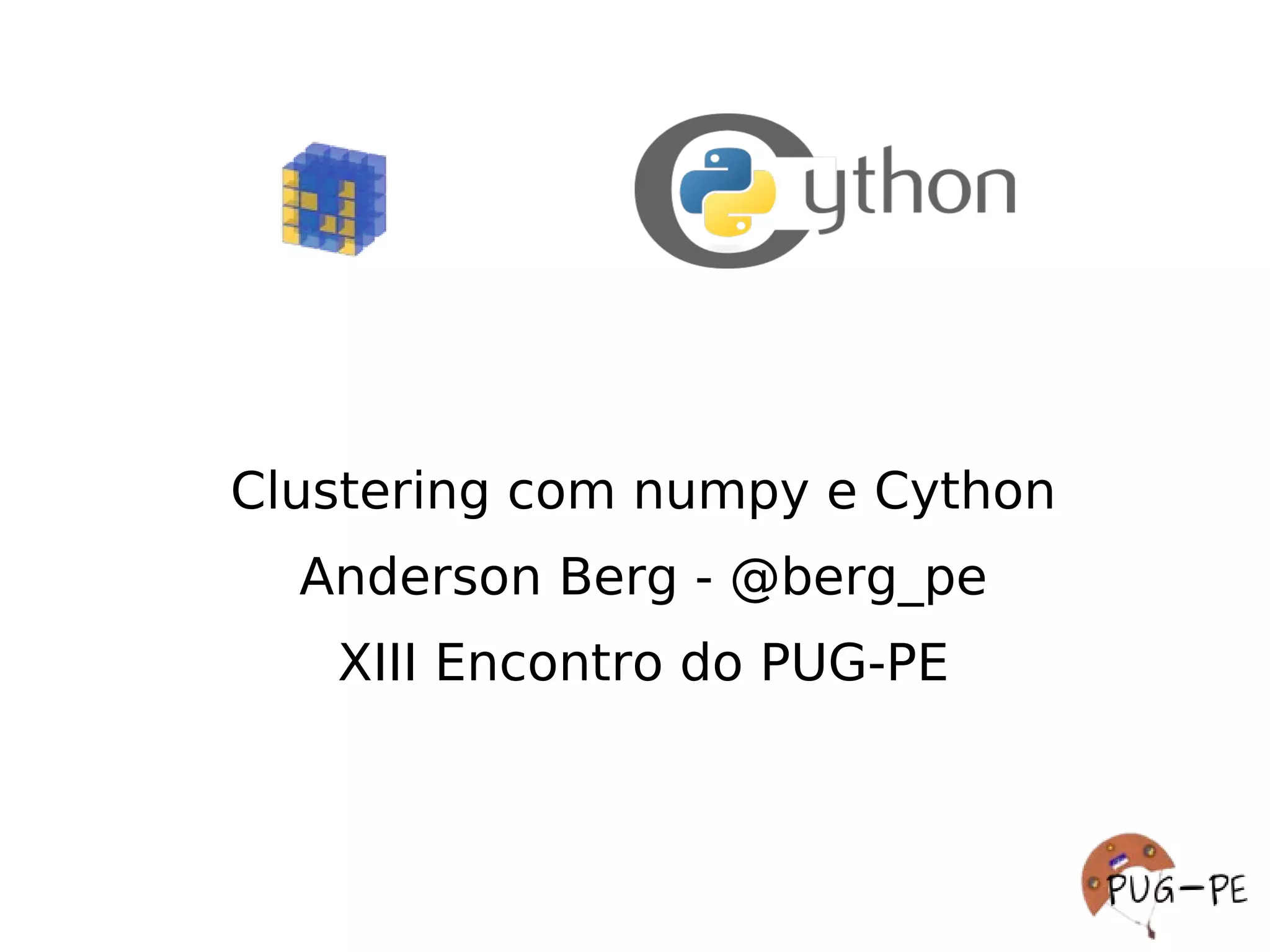The document discusses clustering and numpy arrays in Python. It shows how to create arrays using numpy, perform operations like summing and finding min/max values, and access elements and slices. It also introduces Cython and demonstrates compiling a simple "Hello World" Cython program and using Cython to optimize a Python prime number generation function for improved performance.
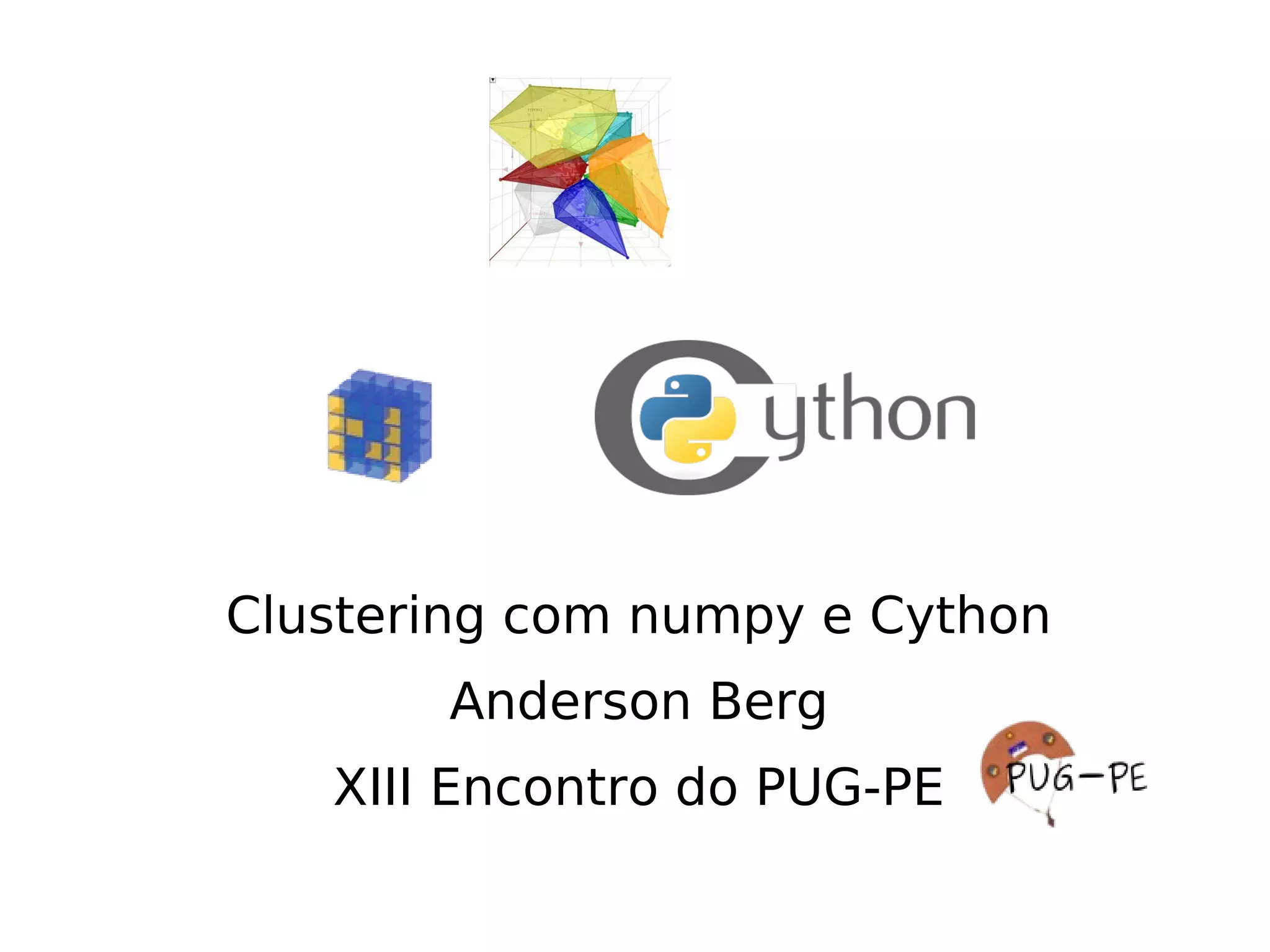
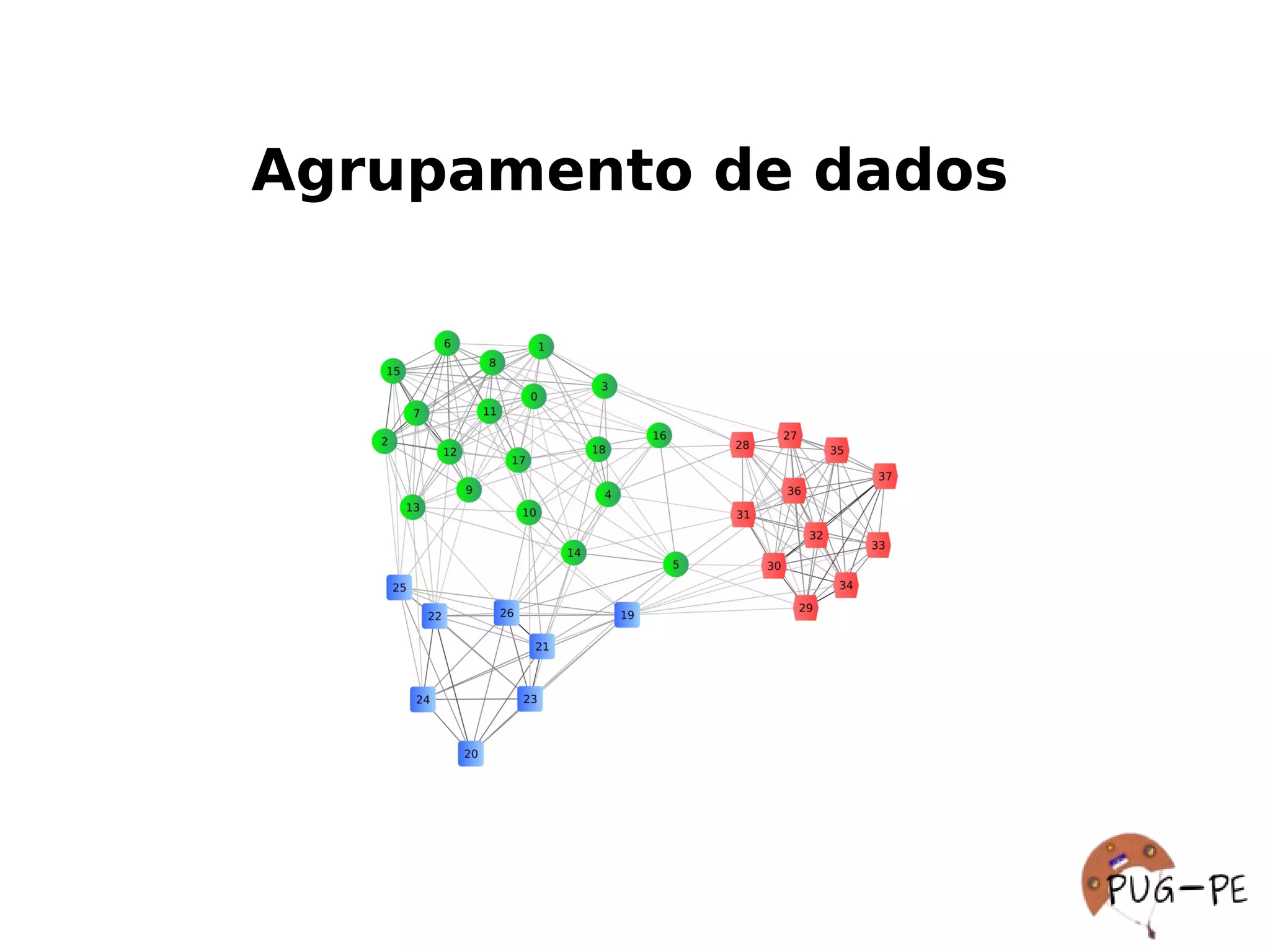
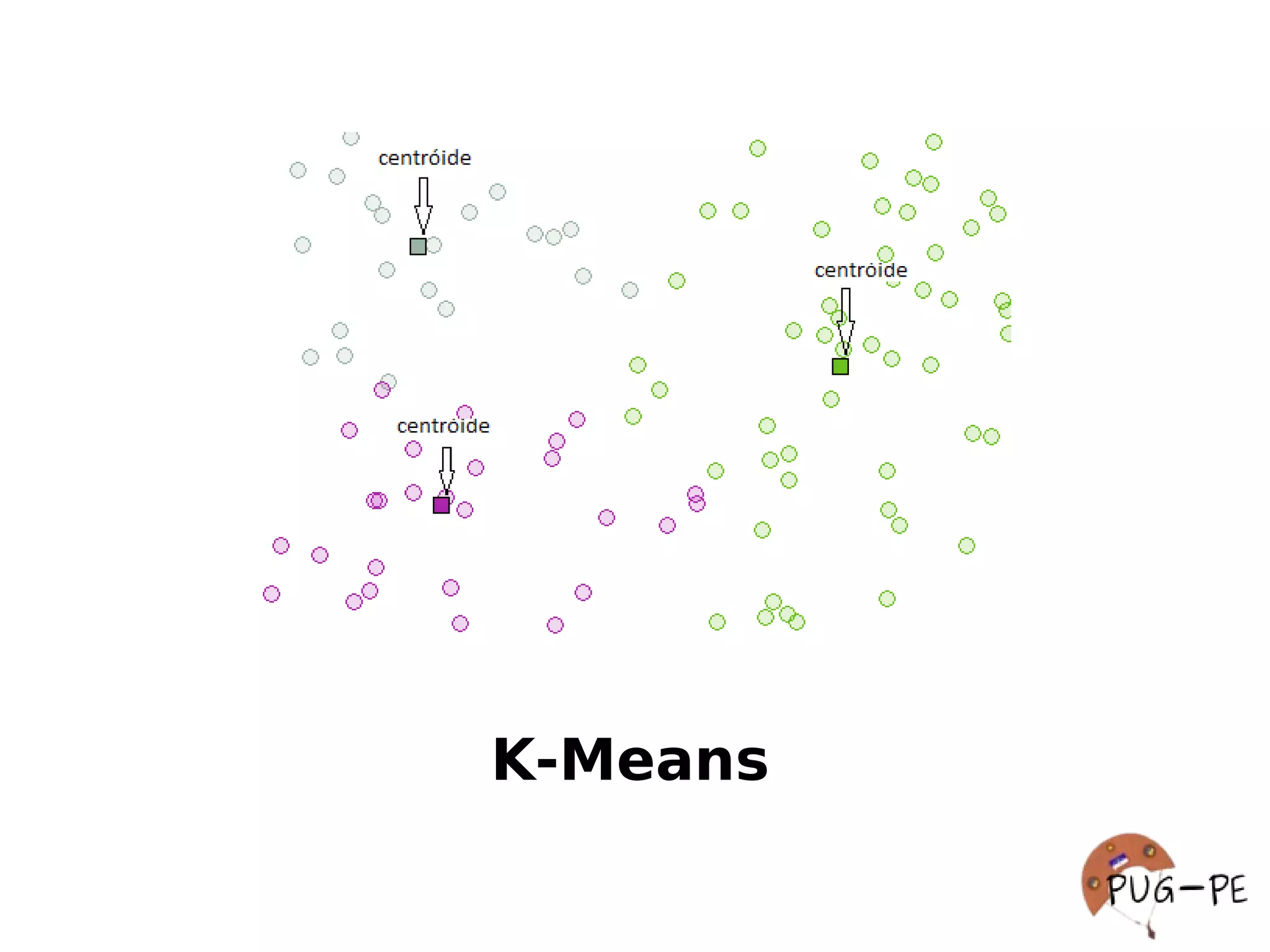
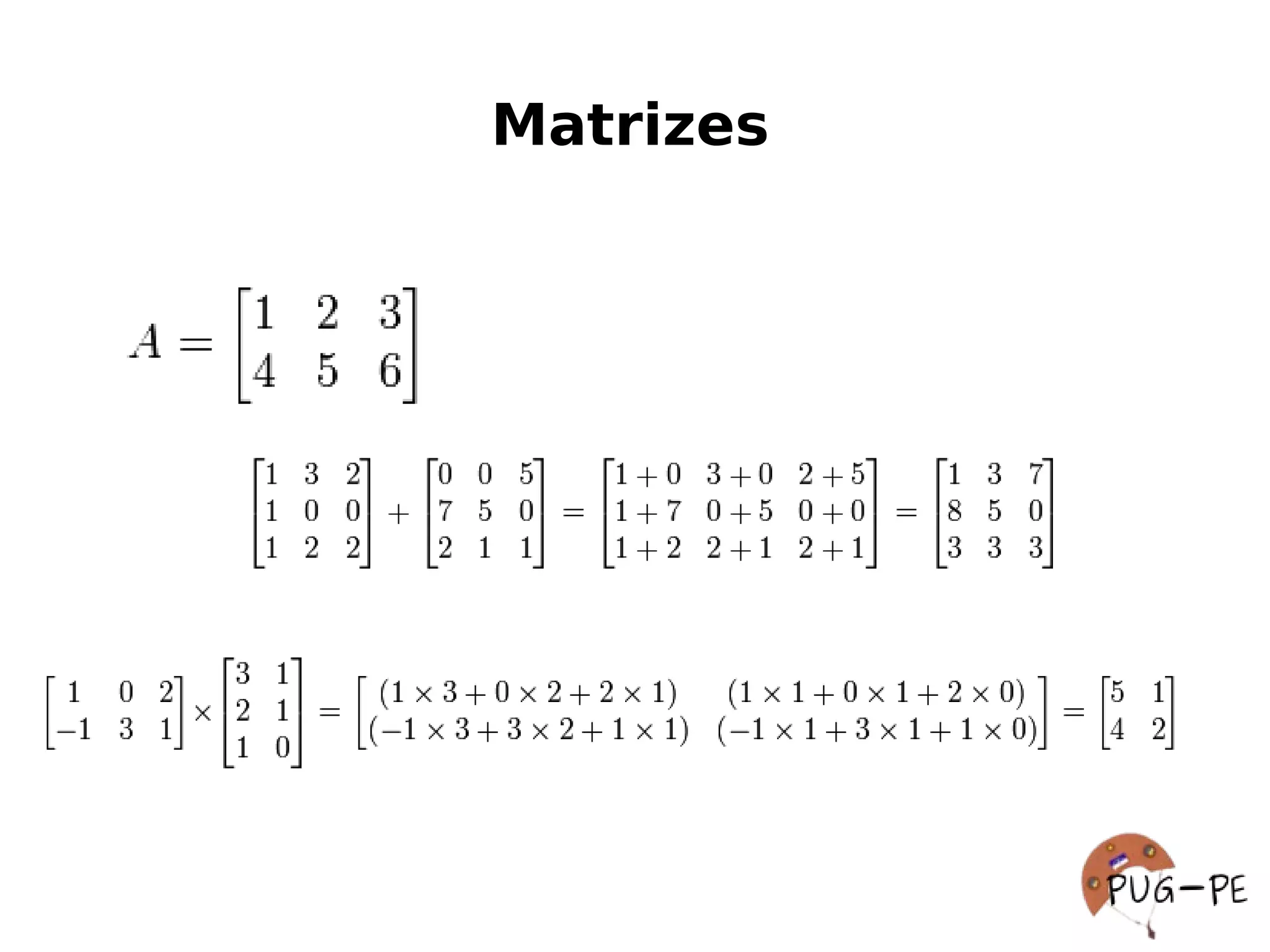
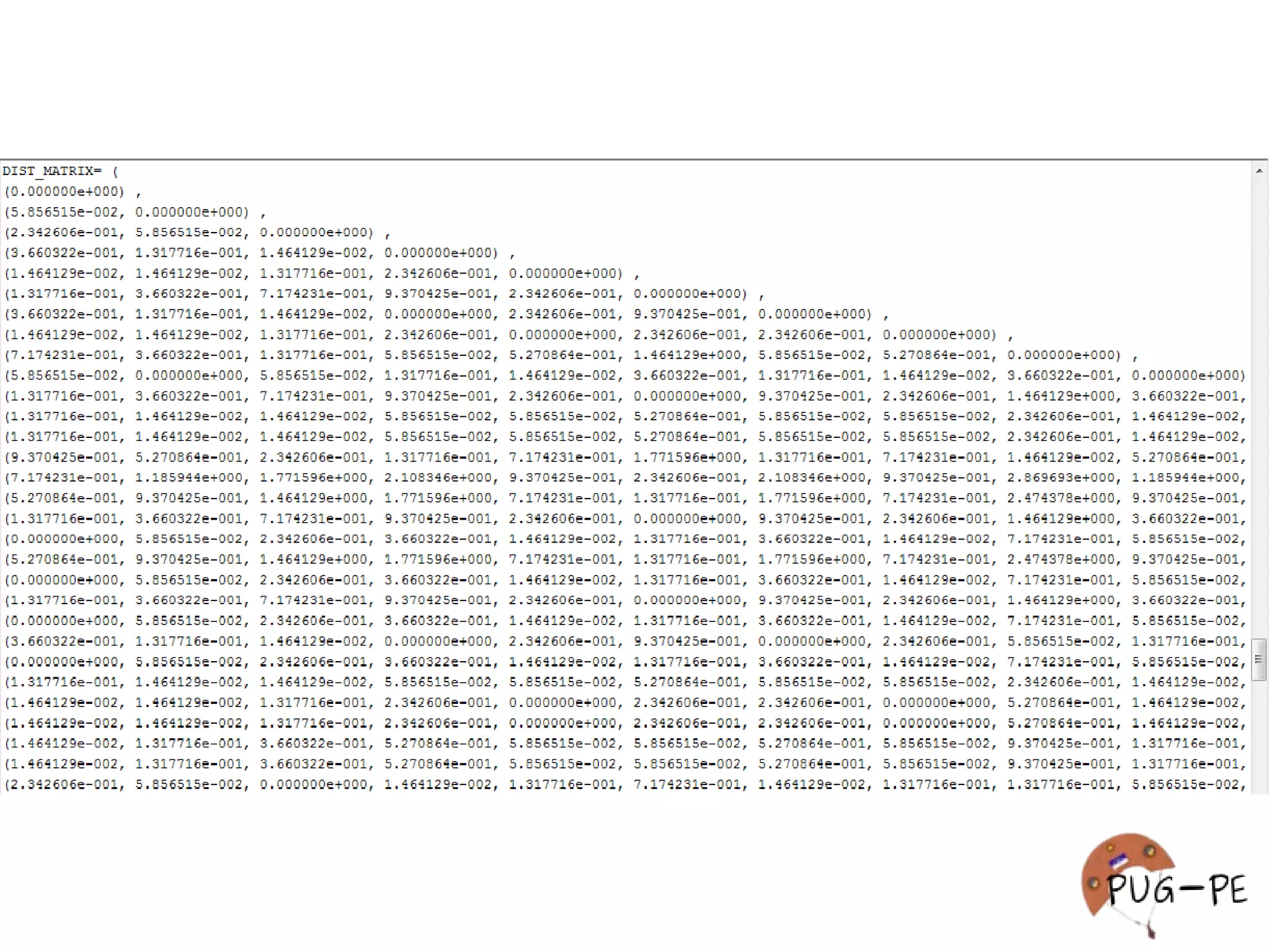

![Exemplo simples >>> from numpy import * >>>a = arange(10).reshape(2,5) >>>a array([[0, 1, 2, 3, 4], [5, 6, 7, 8, 9]])](https://image.slidesharecdn.com/pug-peclustering-110611222843-phpapp02/75/Clustering-com-numpy-e-cython-7-2048.jpg)
![Criação de arrays >>> a = array( [2,3,4] ) >>> b = array( [ (1.5,2,3), (4,5,6) ] ) >>> b array([[ 1.5, 2. , 3. ], [ 4. , 5. , 6. ]]) >>> zeros( (3,4) ) array([[0., 0., 0., 0.], [0., 0., 0., 0.], [0., 0., 0., 0.]]) >>> ones( (2,3,4), dtype=int16 ) array([[[ 1, 1, 1, 1], [ 1, 1, 1, 1], [ 1, 1, 1, 1]], [[ 1, 1, 1, 1], [ 1, 1, 1, 1], [ 1, 1, 1, 1]]], dtype=int16)](https://image.slidesharecdn.com/pug-peclustering-110611222843-phpapp02/75/Clustering-com-numpy-e-cython-8-2048.jpg)
![Outras Operações >>> b = arange( 4 ) >>> b**2 array([0, 1, 4, 9]) >>> a = random.random((2,3)) >>> a array([[ 0.6903007 , 0.39168346, 0.16524769], [ 0.48819875, 0.77188505, 0.94792155]])](https://image.slidesharecdn.com/pug-peclustering-110611222843-phpapp02/75/Clustering-com-numpy-e-cython-9-2048.jpg)
![Ainda outras operações >>> a.sum() 3.4552372100521485 >>> a.min() 0.16524768654743593 >>> a.max() 0.9479215542670073 >>> a[:,1] array([0.39168346, 0.77188505]) >>> sum(a[:,1]) 1.1635685099999999](https://image.slidesharecdn.com/pug-peclustering-110611222843-phpapp02/75/Clustering-com-numpy-e-cython-10-2048.jpg)
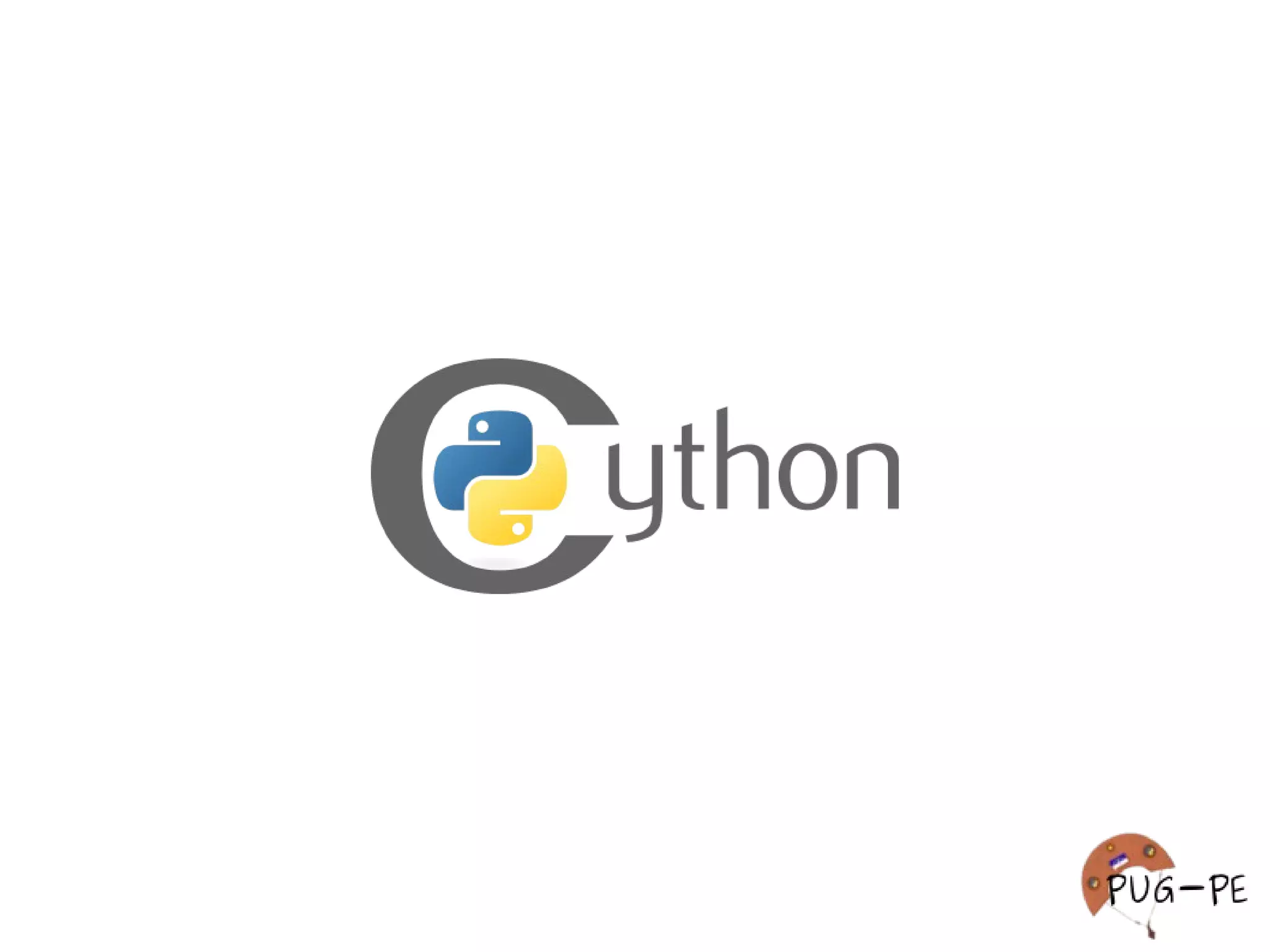
![Primeiros Passos helloworld.pyx: print "Hello World" setup.py: from distutils.core import setup from distutils.extension import Extension from Cython.Distutils import build_ext setup( cmdclass = {'build_ext': build_ext}, ext_modules = [Extension("helloworld", ["helloworld.pyx"])] ) $ python setup.py build_ext --inplace >>> import helloworld Hello World](https://image.slidesharecdn.com/pug-peclustering-110611222843-phpapp02/75/Clustering-com-numpy-e-cython-12-2048.jpg)
![Advanced Mode def primes(int kmax): cdef int n, k, i cdef int p[1000] result = [] if kmax > 1000: kmax = 1000 k = 0 n = 2 while k < kmax: i = 0 while i < k and n % p[i] != 0: i = i + 1 if i == k: p[k] = n k = k + 1 result.append(n) n = n + 1 return result](https://image.slidesharecdn.com/pug-peclustering-110611222843-phpapp02/75/Clustering-com-numpy-e-cython-13-2048.jpg)
